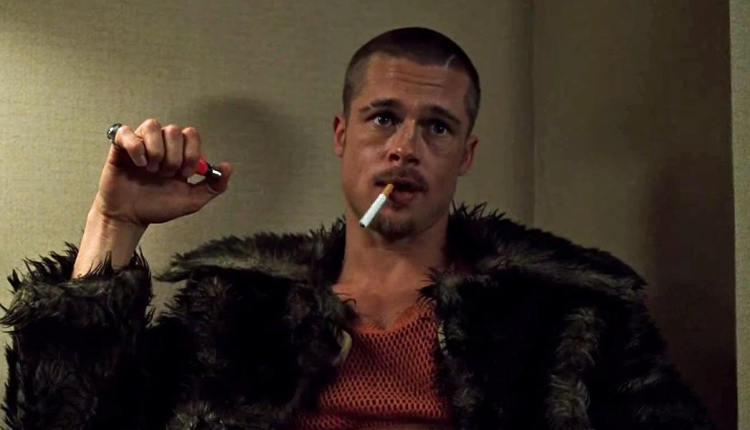American Animals | Fight Club for Millennials
Rebellion has always been a characteristic trait of adolescents for as long as any of us can remember, and this has been reflected in the cinematic medium for as long as it’s been around, from James Dean’s iconic turn in Rebel Without a Cause to the John Hughes movies of the 1980’s, all the way up to the present. The often teenage characters of these movies rebel against the establishment, their parents, their teachers, etc… all in the pursuit of a life unique to that of their elders.
Often at times the values of these two generations come into conflict, whether that be conservatism vs liberalism, religion vs secularism, or heterosexuality vs homosexuality, but most of the time we can understand and even empathize with our teenage protagonists in their pursuit of an alternative world. We recognize that they see fault in the world and they try to change it, for better or for good. But they’re always fighting something. What happens however when our teenage protagonists have nothing to fight against? Nothing to fight for? Nothing they stand for? Nothing they believe in? Here, we find ourselves with the protagonists of American Animals.
American Animals, directed by Bart Layton, tells the bizarre true life story of four college students in the American Southeast who decided to rob valuable books from their university library for no other reason seemingly then boredom. The central two figures of Spencer (Barry Keoghan) and Warren (Evan Peters) begin the movie so disillusioned with the monotony of their lives that they hatch this plan to steal rare books worth up to $15 million, and yet we never get the sense that either of them are particularly infatuated with the money. This becomes even more evident later on as the group is joined by Erik (Jared Abrahamson) and Chas (Blake Jenner) when it becomes clear that monetary gain doesn’t mean a whole lot to any of them as they all come from affluent families.
So why does this band of students come together? Monotonous drudgery which has led to a loss of masculinity seems to be the most likely culprit, but watching the movie and listening to interviews with the real life people involved, it’s impossible to sympathise with any of them on any level. This is where the connection with David Fincher’s Fight Club comes into play.

Fight Club deals with a loss of masculinity and the kind of destruction that can lead to in men. However, at least Tyler Durden (Brad Pitt) in Fight Club has an enemy in sight, one he believes has stripped men of their masculinity and turned them into consumer-obsessed faceless robots: consumer capitalism. For Tyler, consumer capitalism has usurped the true order of nature by forcing men to hide their animalistic and aggressive urges, turning them from the primal hunter into the domestic gatherer. In the movie we see this in the form of the narrator who gathers IKEA products for his apartment in the hopes that this will make him complete, only for Tyler to enter the frame and bring him down to his base instincts, return him to his natural hunter predisposition by creating fight club, where men like the narrator can compensate for the lack of masculinity in their lives by fighting each other. Tyler’s burn it to the ground approach to capitalism, while extremely severe and misguided, is at least based on a philosophy expressed vividly: that consumer capitalism strips men of their agency and forces them into becoming cogs in a machine.
While we may not agree with the philosophical cause for rebellion at the heart of Fight Club, we can at least understand why our protagonists do the things they do; in American Animals, this is not the case. It never truly becomes clear why they decide to carry out the heist. We see once the heist is finished that the group is consumed by guilt over what they did and even desire to be caught, which they promptly are.

Perhaps a loss of masculinity is at the heart of the group’s disillusionment similar to Fight Club, or perhaps, as the title of this piece suggests, this is a Millenial reaction to a problem that doesn’t exist? The boys don’t have anything to rebel against, so are they fighting a bogeyman that doesn’t exist at all? Similar to the rage culture that is so characteristic of modern society where the media would have us believe we live in the worst possible moment in human history, despite all evidence to the contrary, so too do the group create a problem where there is none. They have nothing to fight against and so they fight for the sake of fighting. They see no enemy in the form of their parents, who all seem really supportive; they see no enemy in the form of their university; they see no enemy in the society at large, and yet they attack all three of them, destroying their own lives and the lives of their families in the process, and for what?
In the interviews scattered throughout the movie with the real-life people we get the sense that they don’t understand why they did what they did, and yet they live with this incredible burden of guilt for carrying out a crime for no reason whatsoever. The real-life version of the librarian the group violently attacked during their botched heist has one of the final words in the movie where she describes the group best as a group of men with nothing better to do, and she’s perfectly correct.

